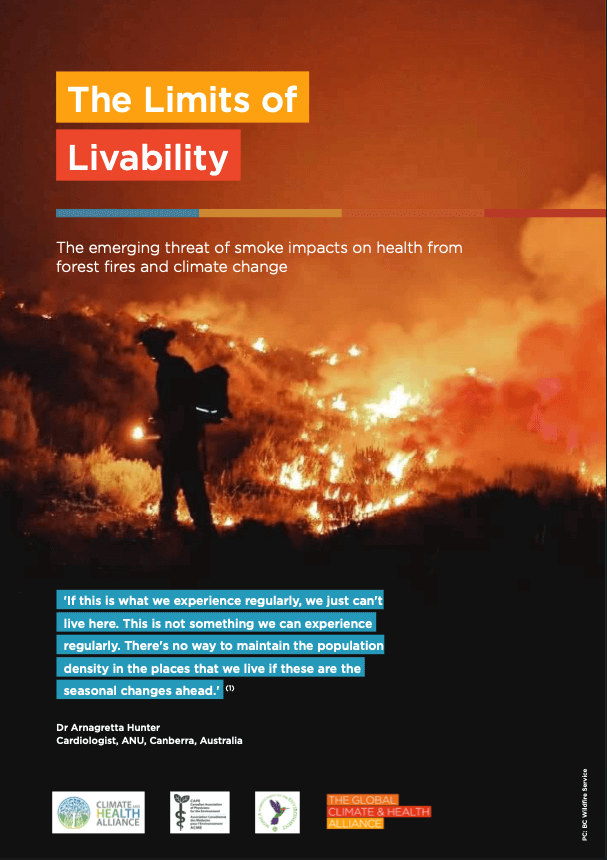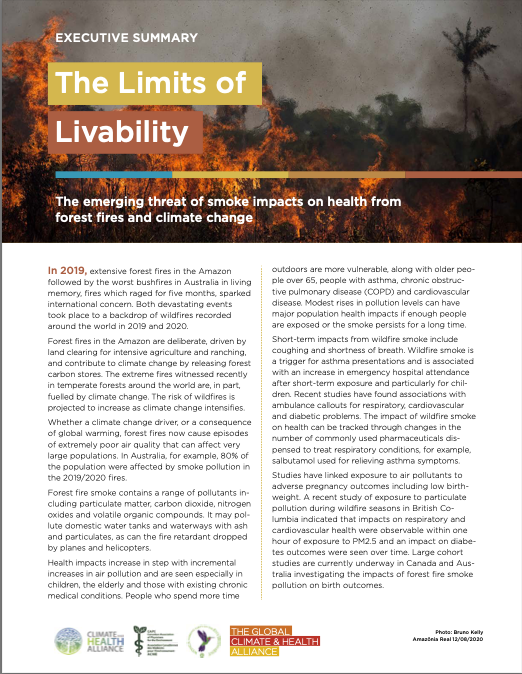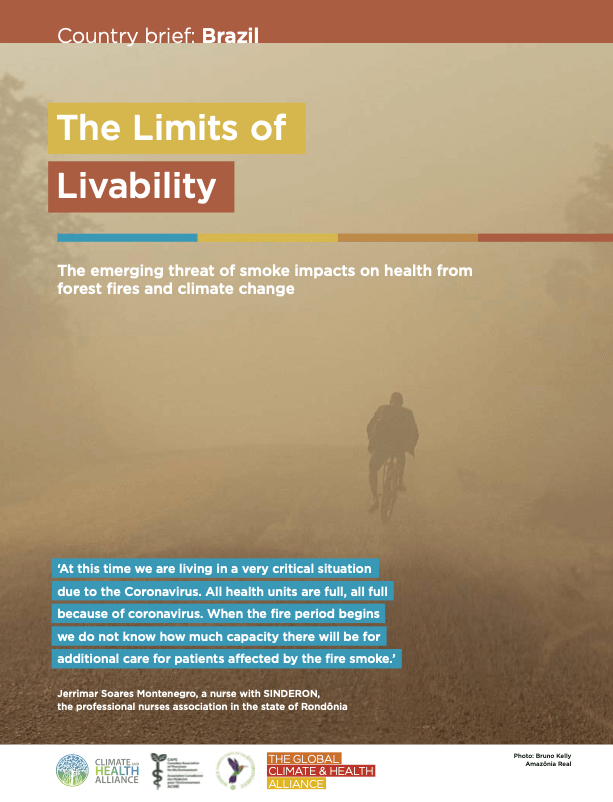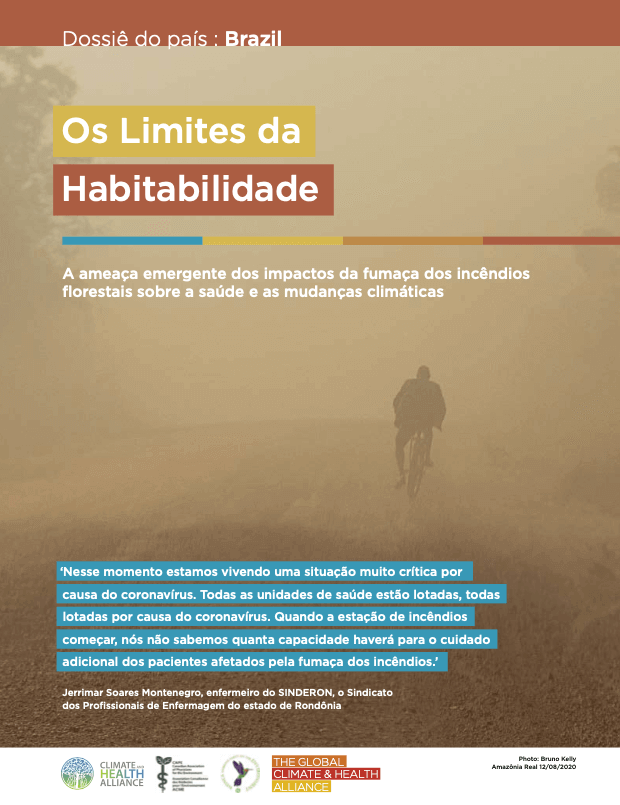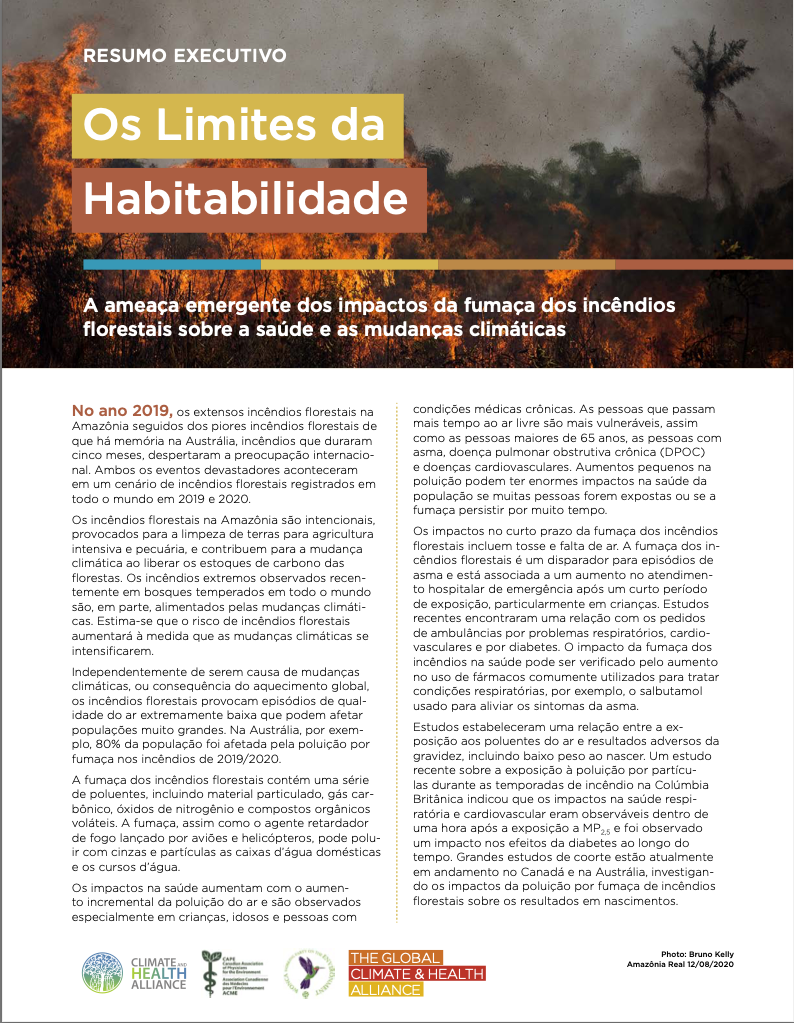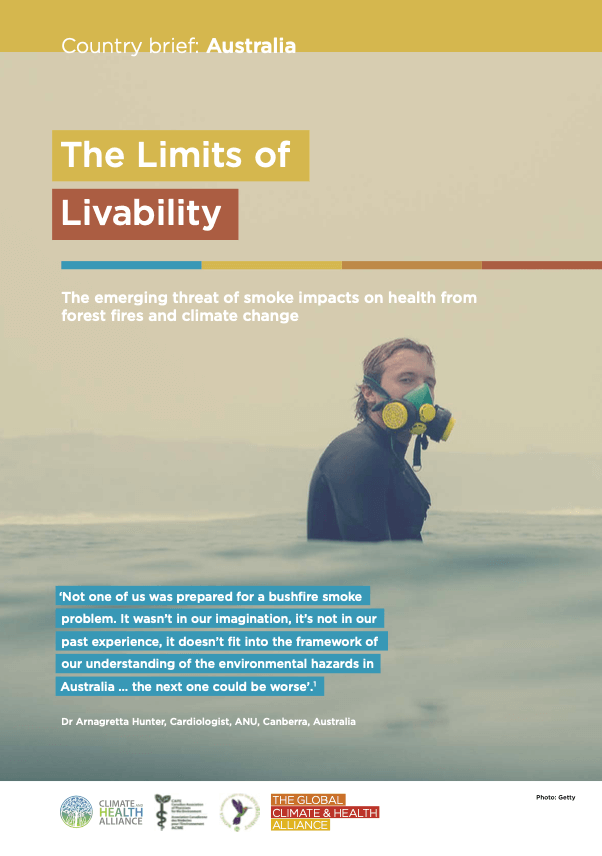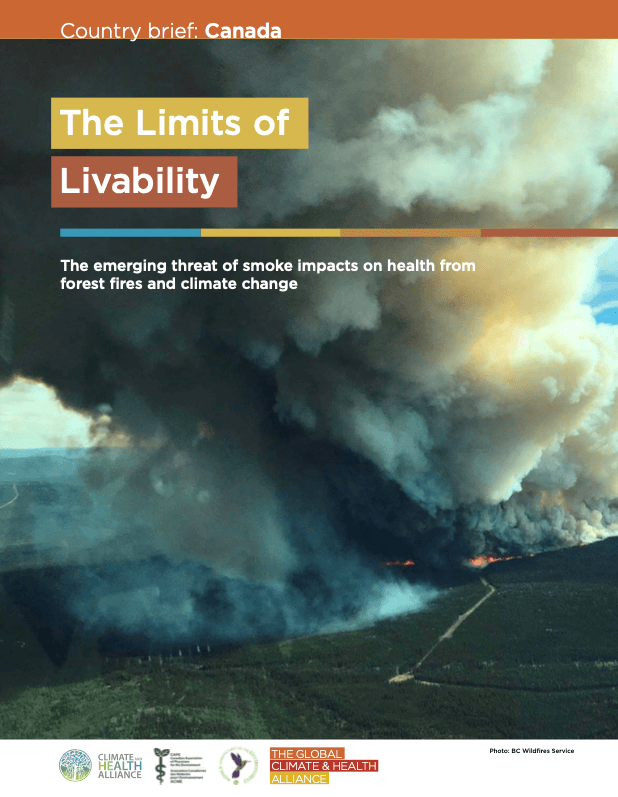The Limits of Livability
The emerging threat of smoke impacts on health from forest fires and climate change
June 2021
“If this is what we experience regularly, we just can’t live here. This is not something we can experience regularly. There’s no way to maintain the population density in the places that we live if these are the seasonal changes ahead.”
Dr Arnagretta Hunter, Cardiologist, ANU, Canberra, Australia
The Report
The risk of wildfires is projected to increase in most areas of the world as climate change intensifies, bringing more frequent heat waves of longer duration and changes in rainfall patterns that affect vegetation growth.
As a result of bigger, more frequent, and longer-lasting fires, larger populations, including urban populations far from the forests, are being exposed to harmful and prolonged levels of wildfire smoke. During the 2019 fires in the Amazon rainforest, GCHA noted that there was scant discussion about the health impacts of the smoke from the fires, and little publicly available data.
This report, developed in collaboration with the Climate and Health Alliance in Australia, the Canadian Association of Physicians for the Environment in Canada, and the WONCA Working Party for the Environment, whose chair is based in Brazil, looks at the health impacts of forest fire smoke, with case studies of major recent fires in each country and interviews with in-country researchers, experts, and medical professionals. A number of recommendations emerge for ways to better prepare for and respond to the health threat of wildfire smoke.
Of the case studies examined, recent fires in Canada and Australia were in part driven by climate change, while the fires in Brazil were set intentionally, as part of agriculturally driven land clearing, a process of deforestation that contributes to climate change. Cutting across these case studies and the recommendations that emerge, therefore, is the urgent need to mitigate climate change.
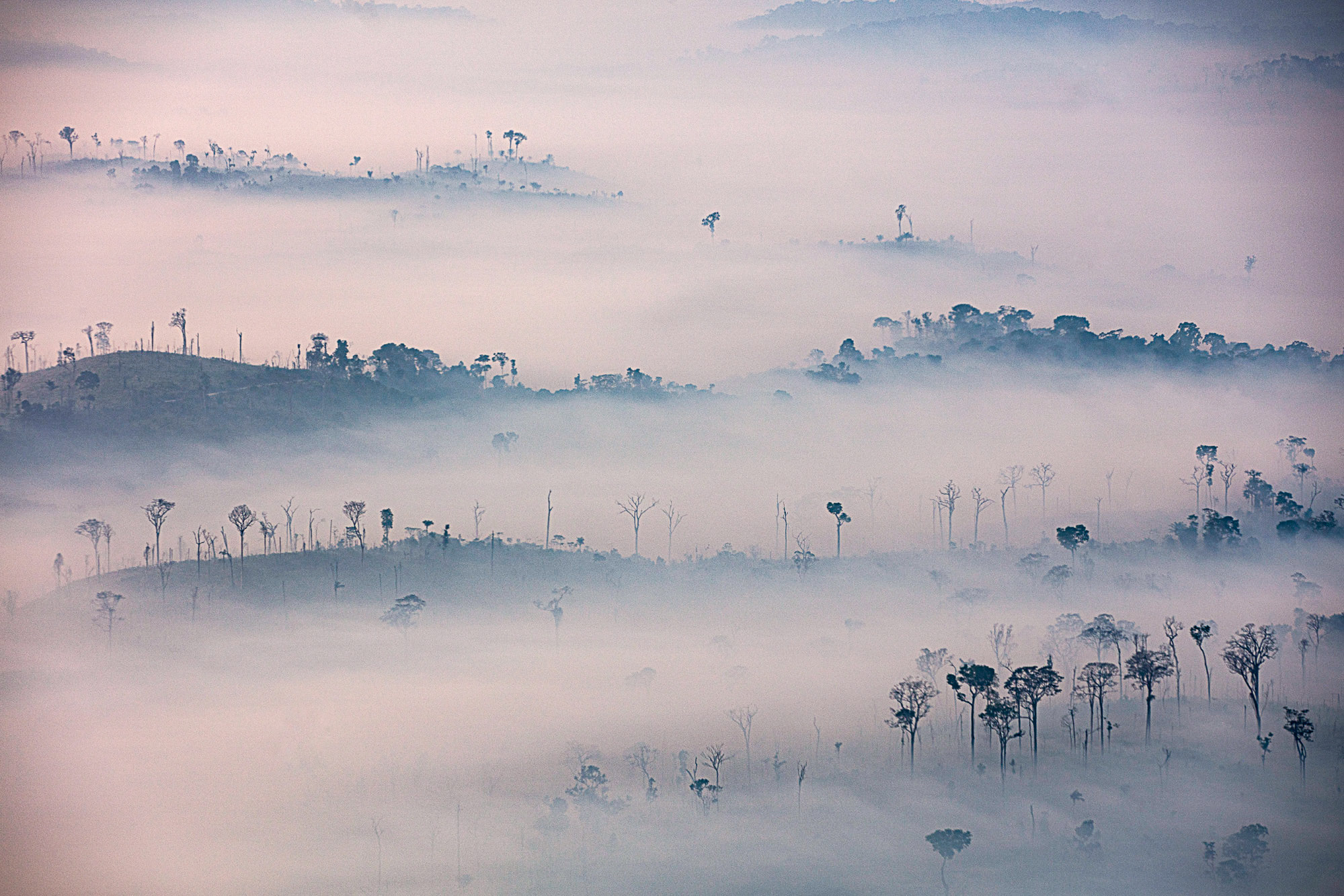
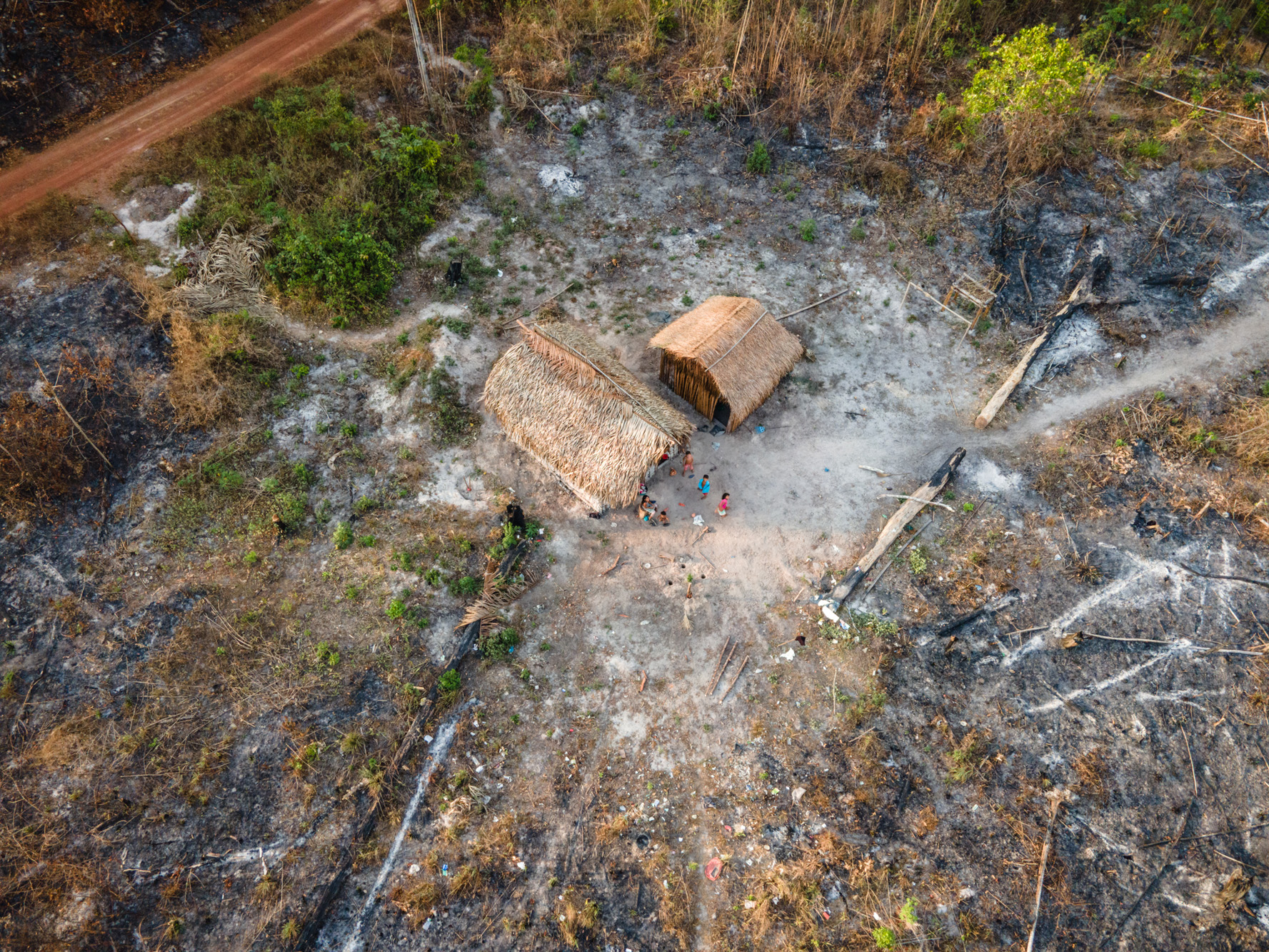
Key Findings
Climate change is driving more extreme wildfires; meanwhile year on year, deforestation (and associated deliberate burning) contributes to climate change, destroying a vital carbon sink to clear land for industrial ranching and agriculture.
An unrecognized yet increasing impact of forest and bush fires is the exposure of larger populations to wildfire smoke, for longer periods, and more often, with significant health impacts.
Governments in affected countries must improve public health resilience and response; all countries must rapidly mitigate climate change, including deforestation moratoria, phasing out fossil fuels, and 1.5°C-aligned climate commitments
Report: The Limits of Livability – The emerging threat of smoke impacts on health from forest fires and climate change
- Main report: The Limits of Livability – The emerging threat of smoke impacts on health from forest fires and climate change (pdf)
- The Limits of Livability: Executive Summary (pdf)
- The Limits of Livability – Country brief: Brazil (pdf)
- Os Limites da Habitabilidad – Dossie do Pais: Brazil (pdf)
- Os Limites da Habitabilidade – Resume Executivo (pdf)
- The Limits of Livability – Country Brief: Australia (pdf)
- The Limits of Livability – Country Brief: Canada (pdf)
- Press release: Forest Fire Smoke Driving Increased Health Risks from Air Pollution Worldwide – Report

